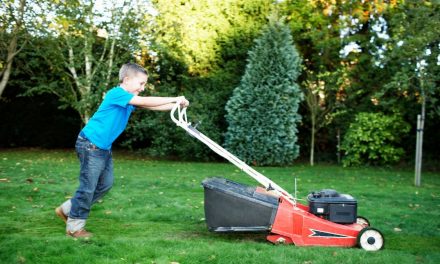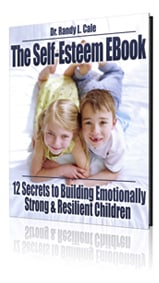In the last article, we discussed how we can easily nurture children who are wimpy and whiney. Most of you cringe at the thought of this, and for good reason. We want our children to be strong, resilient, and eager to tackle the challenges ahead. So, let us discuss how to get there.
Parenting Tools to Build Inner Strength and Resilience
Prepare kids for reality; do not protect them from it.
Reality is tough; in fact, it is often very tough. The best preparation for the inevitable tough road ahead is to build in toughness, and that cannot be accomplished by over-protecting children. Yet, the tendency is to raise children who are protected from the normal developmental lessons that come with their choices at their age. For example:
- We give kids a trophy regardless of their efforts. Not real.
- We finish their homework so that they still get an A. Not a real A.
- We fabricate excuses for a skipped practice, so they can still play in the game. Not real.
- We work harder at their happiness than they do. Not real.
What happens when children hit the real world, after being protected from the consequences of their choices? They fail. They struggle. They wimp out. They give up.
Why? Because their model of the world is false. It is based on false ideas and delusional expectations.
What’s the solution? With your parenting, be grounded in the way the world works: prepare them for reality by refusing to protect them from their choices (if life and limb are not at risk, of course!). In other words, life is set up to teach us about the rules, through the choices and the consequences that come from those choices.
We must (if we want resilient children) give them the gift of learning so they’re able to handle disappointment, frustration, and the pain of poor choices. They will survive and learn from each of these lessons, which are fundamental to thriving in life.
To build strength and resilience you must allow strength to build.
How do you allow strength to build? It’s relatively simple. You accomplish this by following the natural developmental path. As your children age, you do less for them while they do more for themselves. We do not need to make it complex or read a bunch of books.
Strength comes from working a muscle, whether mental or physical. Thus, set up your home where muscles get worked and don’t do the heavy lifting for your child or teenager. Learn how to insist upon more effort from your child that supports their better life. As they age, do less for them, while having them do more for themselves.
Require more contribution for the goodies they want, and trust me, they like the goodies. Require more planning and effort for the playdates and social outings that arise instantly, so they learn to do more planning and preparation. Require more effort at taking care of daily life, such as cleaning rooms and raking yards. Engage in family outings that require some effort in helping others and making a difference in the community. These are key lessons in teaching strength and resilience.
Refuse to engage in (repeated) excuses, complaints, and negative whining.
If complaints and excuses are repeatedly engaged by parents, the child learns that the world will care about these excuses. And guess what? The thriving world is not really interested in excuses and disdains a whiner.
The antidote here is simple: Do not show interest in these patterns. Simply disengage, and allow the whining, the complaints, the excuses to be of complete disinterest to you. Reflect a model of the world that is more focused on moving forward, not complaining, or whining about circumstances beyond their control.
Too harsh, you say. There is nothing harsh about disinterest in whining, complaining, or excuses. In fact, I would argue it is the kindest action you can take. You are not yelling at them, rolling your eyes, or telling them to be quiet. But you are teaching them an important lesson in these select moments: in the healthy, productive world…no one cares about these wimpy behaviors.
Keep your heart open and know your child can handle these moments.
Having watched the magic of these parenting changes, it can be easy to get lost in the power of these strategies. In doing so, we can lose touch with the power of love and belief. Yet, these are the essential catalyst of change. Thus, I remind you that we are always teaching these tough lessons, with a sense of kindness and love in your heart. There is no need for tension, anger, or controlling approaches here.
Be easeful, loving, and kind as you remind your child that you have faith in them. And tell them, with deep sincerity, that, ‘’You can handle this sweetheart.” Your belief in them must be grounded in love and in the sense certainly you have in their inherent ability and strength.
These are the keys to building resilience and strength, but it does take time. These deep changes evolve over months, not weeks, so be patient. You can watch their confidence grow steadily if you hold the course.















